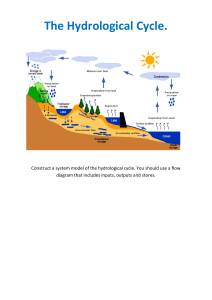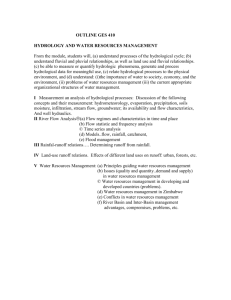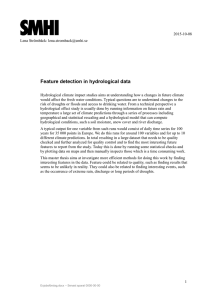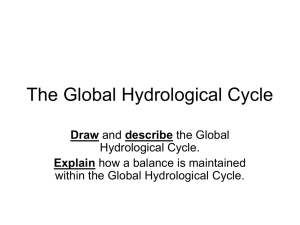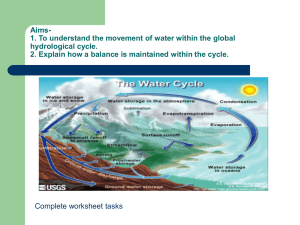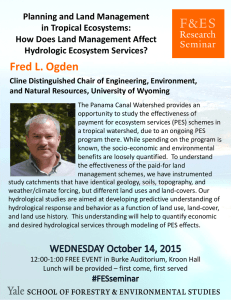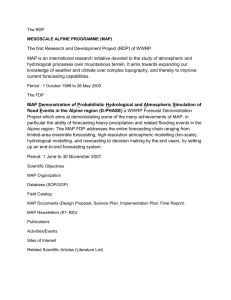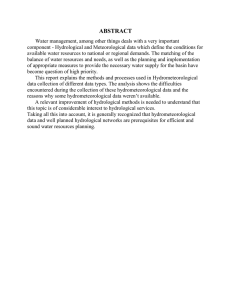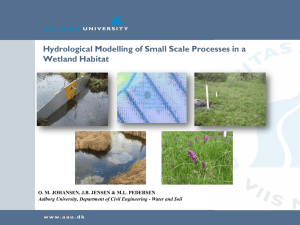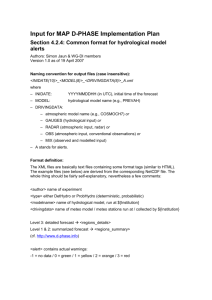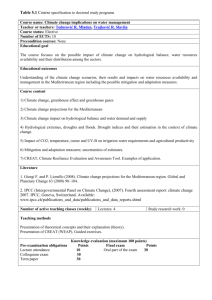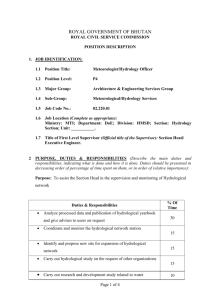MET 3104 Hydrometeorology
advertisement
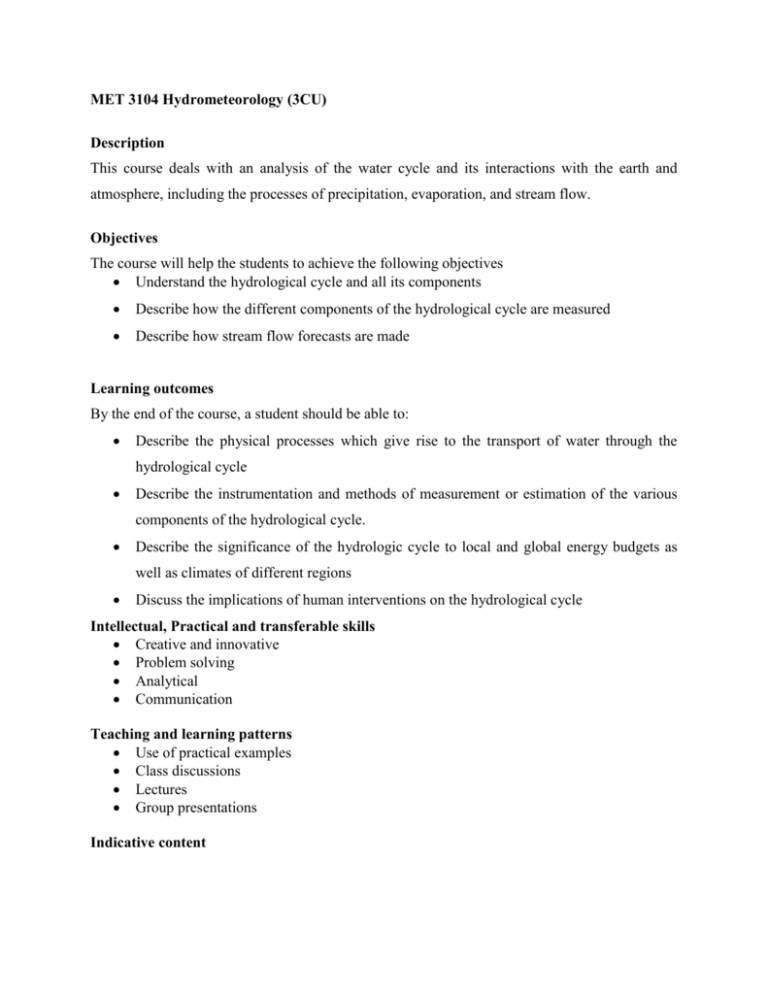
MET 3104 Hydrometeorology (3CU) Description This course deals with an analysis of the water cycle and its interactions with the earth and atmosphere, including the processes of precipitation, evaporation, and stream flow. Objectives The course will help the students to achieve the following objectives Understand the hydrological cycle and all its components Describe how the different components of the hydrological cycle are measured Describe how stream flow forecasts are made Learning outcomes By the end of the course, a student should be able to: Describe the physical processes which give rise to the transport of water through the hydrological cycle Describe the instrumentation and methods of measurement or estimation of the various components of the hydrological cycle. Describe the significance of the hydrologic cycle to local and global energy budgets as well as climates of different regions Discuss the implications of human interventions on the hydrological cycle Intellectual, Practical and transferable skills Creative and innovative Problem solving Analytical Communication Teaching and learning patterns Use of practical examples Class discussions Lectures Group presentations Indicative content Introduction to the Hydrological Cycle: Outline of the components of the cycle. Fluxes and stores of water on a global scale. Importance of the cycle on global and local scale. Precipitation: Types, measurement (by gauges, radar and satellite). Variations in space and time. Area estimates. Extreme values Evaporation: Physics of evaporation. Actual and Potential evaporation. Interception. Methods of measurement, methods of calculation (e.g penman, Bowen ratio) Soil Moisture; Characteristics of soils. Physics of water movement in soils. Infiltration and percolation Run off and river flow. Stream flow generation and flow measurements Hydrometry: Hydrographs, analysis, synthesis and theory application of the unit hydrograph, floods and low flows. Forecasting: purpose of forecasting, classification of forecasts; short term forecasting (river routing, linear reservoir storages). Long term forecasts. Effect of water pollution and human intervention on hydrological cycle Assessment Method The assessment method is structured to include course work, and final examination. Course work consists of assignments, reports, practicals and tests and accounts for 40% of the final grade. The final examination will account for 60% of the final grading Core Reference materials James. P. Bruce and Robert H. Clark (1966): Introduction to Hydrometeorology, Pergamon Press R.C. Ward (1975): Principles of Hydrology, McGraw-Hill
